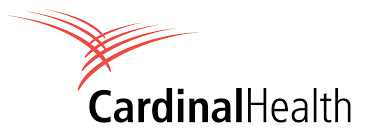
Expert: The Pharmacy Profession Has Changed “Profoundly”

Naveen Mansukhani, BPharm, National Operations Director for Cardinal Health Retail Pharmacy Services, discussed how he is celebrating American Pharmacists Month.
In an interview with Pharmacy Times, Naveen Mansukhani, BPharm, National Operations Director for Cardinal Health Retail Pharmacy Services, discussed how he is celebrating American Pharmacists Month. Throughout his career, Mansukhani emphasized that he has seen incredible growth and changes in the pharmacy profession.
Q: Can you start by introducing yourself?
A: Sure, I’m Naveen Mansukhani. I'm National Operations Director over Retail Pharmacy Services for Cardinal Health. My areas are really 4 pillars over retail pharmacy: The first is working with federally qualified health centers to provide pharmacy services. A second is working with hospitals in the outpatient pharmacy capacity—retail pharmacies within the hospital space. Third is specialty pharmacy accreditation. And lastly, we oversee a central fill based out of Los Angeles, California.
Q: How did you get into pharmacy?
A: So, I've been a pharmacist since 2001. I graduated from Rutgers University and actually started my career as a cashier for Pathmark Drugstores, which is a regional grocery chain up in the New Jersey, New York area. And at some point, while in high school, I was brought into the pharmacy department and got to experience what a 24-hour, 7 days a week pharmacy was in the grocery environment. And that kind of pushed me to going into pharmacy school. From there, I worked up the ladder within that regional chain, from cashier to student in the pharmacy to floating pharmacist once I graduated in 2001, then pharmacy manager, regional pharmacy supervisor, before I moved on to a regional chain in New York City, and then on to a national chain out in the Brooklyn area. Finally, I moved over to Cardinal Health where it was really just doing retail, but retail in a hospital environment, which was something completely new for me.
Q: How have you seen the profession change throughout your career?
A: Yeah, I mean, the profession has changed profoundly from where it was. Literally, when I started, it was count, lick, stick, pour, and that was the pharmacist role. When I graduated, [we had just started] started talking about pharmaceutical care. Immunizations wasn't even part of it, but pharmaceutical care was. You know, the pharmacist and the value of the pharmacist talking to a patient, helping them understand why they're taking their medication, you know, increasing the compliance rates and medication. That's really where we were focused. And then as time has gone on, so much more has evolved with immunizations, with medication therapy management, pharmacists involved in specialty treatments. The profession has really gone from more of a lick, stick, count, and pour, to really a member of the health care team. [We’re] a very important member of the health care team on the retail side of the business, where we now call it ambulatory care versus just retail pharmacy because the pharmacist is really that last stop for patients after they've seen their provider, to really help them understand and also determine the socioeconomic impacts of what they're taking, why they're taking it, and how can the pharmacist play a role in ensuring the patient understands.
Q: What is the value of the pharmacist to you personally, and to the overall health care system?
A: So, I mean, pharmacists impact patient care. And, I mean, that that is the huge value. And, you know, within my current role here at Cardinal, I really get to see pharmacists playing a tremendous role with patients that are either socioeconomically not able to afford their medications or uninsured patients, under-insurance patients. We actually get to see patients and have an overall impact in public health. And that's the most rewarding part about my job, is just to see the impact that a pharmacist can make on a patient every single day. But just the value of what a pharmacist means to a patient. Again, you know, the last stop on their health care journey is really picking up their drugs and going home. And that connection that a patient has with a pharmacist really truly impacts their quality of life and compliance rates. And, I mean, there's tons of information out there about the value and reward of being a pharmacist.
Q: How are you going to be celebrating this American Pharmacists Month?
A: So, we are going to be celebrating by just starting with just stories of how our pharmacists impact the patient at every level, from inpatient pharmacy services where, you know, our hospital pharmacists are working with therapies to meds to beds programs, where our retail pharmacies are working with patients on transitions of care all the way to home. So, it's really just celebrating all the impacts we're making as pharmacists with specific stories that we'll send out, just in an effort to thank our pharmacists and technicians who play an extremely important role in every day and what we do. That's kind of the start of it, not only thanking the pharmacists for what they're doing, but also providing examples of the impact that we're making to patients every day.
Newsletter
Stay informed on drug updates, treatment guidelines, and pharmacy practice trends—subscribe to Pharmacy Times for weekly clinical insights.


























